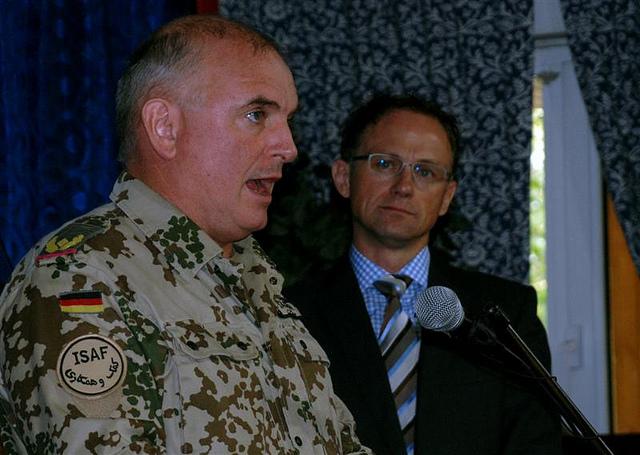KABUL) said on Monday.
Led by Afghans and were supported by ISAF, Operations Sword and Knife Edge are conducted along the Afghanistan border. The joint military push was launched last week.
The offensives were focused around Kabul, southern and eastern provinces of the country to disrupt insurgent operations, an ISAF spokesman, Carsten Jacobson, told a press conference in Kabul.
“We can now say that at least 20 Haqqani-affiliated insurgents have been killed or captured during these operations,” he said, adding half of the militants were identified as leaders and the rest as facilitators or improvised explosive device markers.
With the killing and capture of 195 mid-level leaders and experts, the security forces had disrupted rebel operations and degraded the Haqqani network’s ability to coordinate and execute attacks in the future, he claimed.
“Over 175 additional insurgents were either detailed or killed in the course of the operations,” he said, adding more than 400 kilograms of explosives, munitions and computers had been seized.
Last month, the NATO-led force said they had evidence to prove that the group was behind a string of recent assaults, including the attack on the US embassy and NATO headquarters.
Six gunmen, equipped with heavy and light weapons, stormed a high-rise building under construction near the Abdul Haq Square in the heavily-fortified city on Sept.13 and fired rockets at the National Directorate of Security (NDS) office, the US embassy, NATO Headquarters, and some government compounds.
Twenty-seven people — 11 civilians, five police officers and 11 insurgents — died in the 20-hour battle and 33 other people were wounded.
“The mission and struggle of ISAF against the network are focused in Afghanistan and we also want cooperation from Pakistan,” the spokesman said.
“If you want to struggle against the enemy inside your home, first of all you should shut the door than starts fighting,” he said of ISAF soldiers’ deployment to border areas.
“We will remain vigilant, will secure vulnerable areas throughout the winter months and continue to interdict future spectacular attacks planning as we set conditions for further growth in Afghanistan security capabilities, transition to an Afghan security lead and reduce insurgent-caused violence…,” he said.
Pakistan attacked five times different Afghan provinces, including Kunar, between July and August, the spokesman said. However, he explained the incursions were not as big as reported by media outlets, he said of the cross-border shelling.
myn /mud








GET IN TOUCH
NEWSLETTER
SUGGEST A STORY
PAJHWOK MOBILE APP